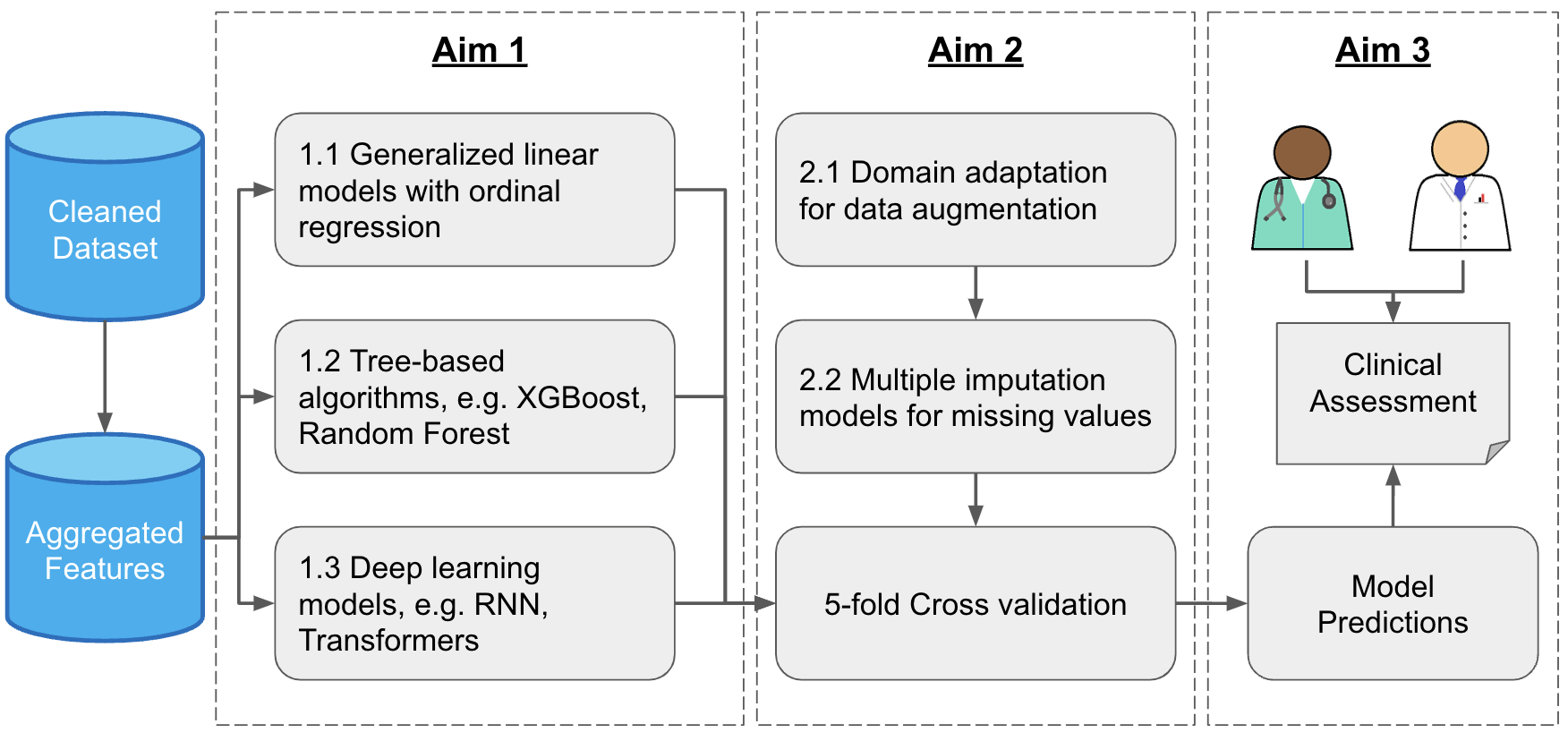Child patients in PICUs (Pediatric Intensive Care Units) receive heparin infusions to prevent or to treat blood clots. However, they are at risk of complications from these infusions if the heparin dose is too high or too low, and changes in patient physiology mean that the optimal dose for a patient may change over time. Therefore, accurate and timely monitoring of coagulation functions is of crucial importance to ensure the safety and efficacy of heparin infusions. For child patients, the trade-off between the benefits and risk of frequent laboratory testing is a significant challenge. Potential complications of frequent laboratory testing include anemia, increased transfusions, unnecessary treatment through misinterpretation of laboratory results, infection, disrupted sleep, and increased costs of care.
Numerous approaches have been attempted to reduce the risk of testing, such as smaller blood volume per collection, and bundles with education and protocols. PhD student Jiacheng Liu (Computer Science PhD program, Computer Science and Engineering), in a project called “Identify potentially avoidable blood draws via estimating coagulation measurements for pediatric patients treated by heparin infusion,” is using a data-driven approach based on prediction of values and uncertainty of lab test results via machine learning models. The rationale behind the project is that the model will be able to predict coagulation parameters or the necessity of a blood draw, by looking at not only coagulation test results in the past but also other relevant information like diagnosis, demographics, and medicine usage.
Some funding for this project was provided by a DSI-MnDRIVE PhD Graduate Assistantship. The DSI-MnDRIVE Graduate Assistantship program supports U of M PhD candidates pursuing research at the intersection of data science and any of the five MnDRIVE areas:
- Robotics
- Global Food
- Environment
- Conditions
- Cancer Clinical Trials
Projects in this program must align with one of the Data Science Tracks:
- Foundational Data Science
- Digital Health and Personalized Health Care Delivery
This project is part of the Brain Conditions MnDRIVE area and the Digital Health and Personalized Health Care Delivery Data Science track. See the complete list of the RC-MnDRIVE Graduate Assistantships.
